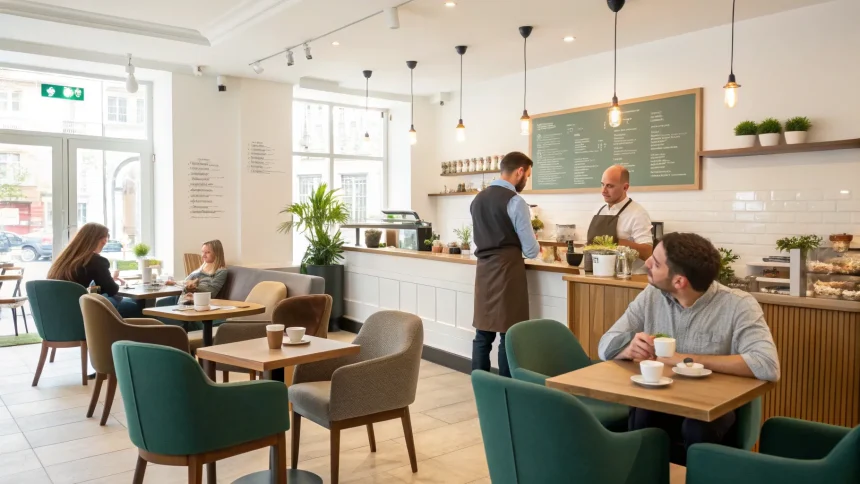Brian Niccol’s ambitious turnaround plan focuses on enhancing customer experience through improved service, better seating arrangements, and more personal messaging, but frontline baristas report feeling increased pressure as these changes roll out.
The new strategy aims to revitalize the company’s image and boost customer satisfaction after a period of declining sales and customer complaints. While management presents the plan as a path to renewed growth, employees on the ground describe a different reality as they struggle to meet heightened expectations.
The Three-Pronged Approach
Niccol’s plan centers around three key elements. First, service improvements include faster transaction times and more attentive customer interactions. Second, physical space renovations feature more comfortable seating areas designed to encourage customers to stay longer. Third, the company is implementing more personalized messaging in both marketing and customer interactions.
“We’re focusing on what matters most to our customers,” a company spokesperson explained. “Our research shows people want quick, friendly service, comfortable spaces to relax or work, and to feel a personal connection with our brand.”
Industry analysts view the strategy as a necessary response to changing consumer preferences and increased competition in the specialty beverage market. The emphasis on physical space improvements comes as many competitors have reduced seating in favor of drive-through and mobile pickup options.
Employee Concerns Mount
Despite management’s optimism, baristas report significant challenges implementing the new directives. Many describe feeling overwhelmed by competing priorities and insufficient staffing to meet the enhanced service standards.
“We’re expected to be faster, friendlier, and more personal with each customer while handling more complex orders and keeping the seating areas pristine,” said one barista who requested anonymity to speak freely. “But we haven’t seen corresponding increases in staffing or training resources.”
Other employees mentioned pressure to memorize customer names and preferences while maintaining efficiency during peak hours. Several noted that the emphasis on “heartfelt messages” often translates to scripted interactions that feel forced rather than genuine.
Industry Context
Niccol’s approach mirrors successful turnaround strategies he implemented in previous executive roles. His reputation for revitalizing brands through customer experience improvements has generated significant investor interest, with company stock rising since the announcement of his plan.
The coffee and specialty beverage sector has seen substantial shifts in recent years, with consumers increasingly expecting:
- Personalized service and recognition
- Comfortable “third places” between home and work
- Authentic brand connections rather than transactional relationships
Competitors have responded with varying approaches, from technology-focused solutions like mobile ordering to community-centered store designs. Niccol’s strategy appears to blend traditional hospitality values with modern expectations.
Balancing Act
The tension between corporate vision and frontline reality highlights a common challenge in service industry transformations. While executives focus on customer satisfaction metrics and brand positioning, employees must translate abstract concepts into daily operations.
“The ideas are good in theory,” another barista commented. “But without proper support systems, we’re just being asked to do more with the same resources, which leads to burnout and higher turnover.”
Management has acknowledged some implementation challenges but maintains that initial customer response to the changes has been positive. The company reports higher customer satisfaction scores in locations where all elements of the plan have been fully implemented.
As the turnaround plan continues to roll out across locations, the company faces the critical task of aligning employee experience with customer experience. Analysts suggest that addressing barista concerns will be essential for long-term success, as staff turnover could undermine service quality improvements.
The coming months will reveal whether Niccol’s vision can be successfully implemented at scale while maintaining employee morale and engagement—a balance that has proven elusive for many service industry transformations.







